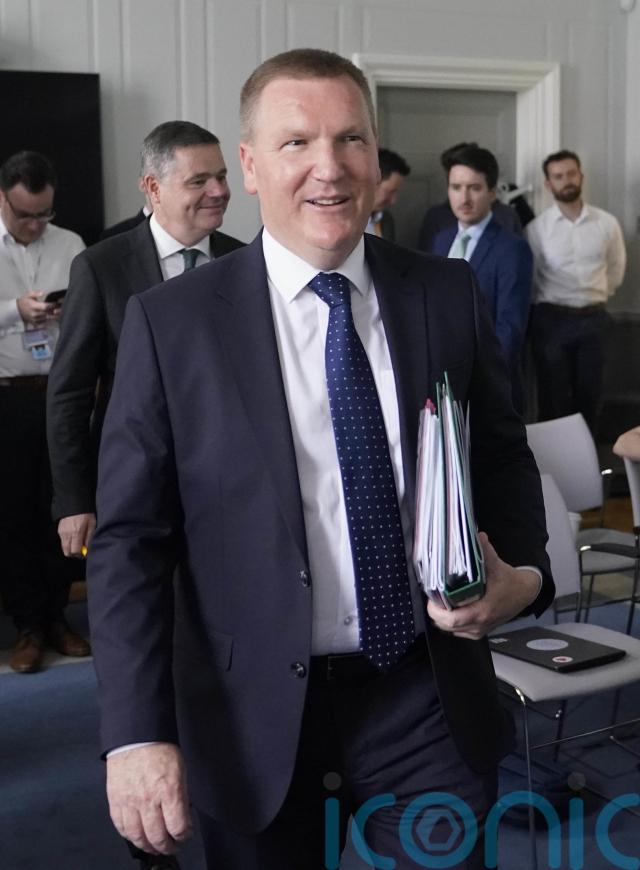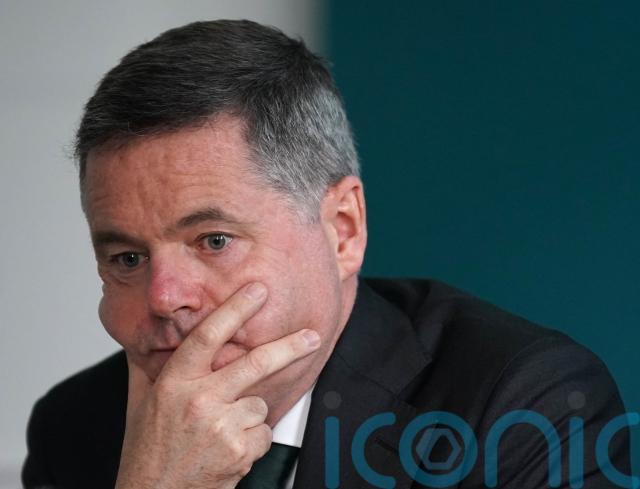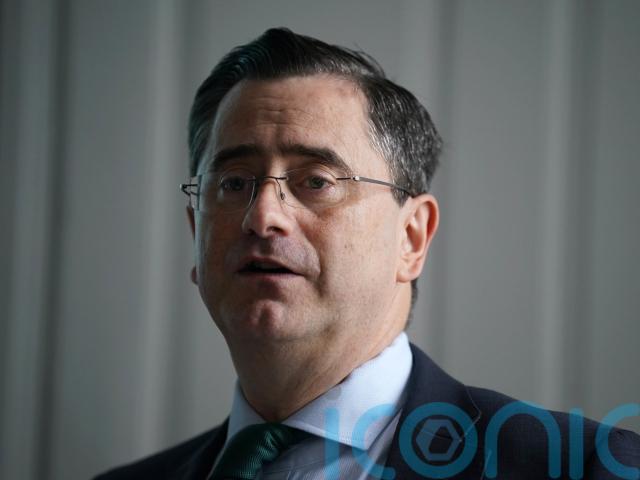
The ministers for finance and public expenditure have defended increasing expenditure beyond their own 5% rule as they announced the Government’s Summer Economic Statement.
The Cabinet has agreed an overall package for the budget of 6.4 billion euro, according to the statement.
There will be additional public spending of 5.2 billion euro and taxation will amount to 1.1 billion euro.

The Government had adopted a medium-term budgetary strategy based on public expenditure growth of 5% per annum over the medium-term.
However, the budget on October 10 will see a 6.1% increase in core spending “to protect public services”.
Annual increases in spending were anchored to the economy’s estimated trend growth, taking into account an assumed inflation rate of around 2%.
The Department of Finance said that while inflation is easing, it is still expected to remain above trend next year.
Finance Minister Michael McGrath said the budget was “prudent”, adding the main reason behind increasing spending beyond the 5% rule is because of inflation projections.
He said the the current headline inflation forecast under the stability programme update is 2.5% and other forecasts have it as high as 3.5%.

He said the spending rule is “not static”.
“It is a rule that has to be adapted to the circumstances that we face point in time.”
Minister for Public Expenditure Paschal Donohoe said the budget meets “safety tests” in the public finances.
“We’ve now posted a surplus, and a growing surplus and a surplus that is now at the level that is in line with the vulnerability advice that we have received, and that is the other side of the coin in relation to the value of that rule.”
On windfall corporation tax receipts, Mr McGrath said it would not be prudent to use them on recurring expenditure.
He said the current expenditure plan will not, in net terms, spend those windfall corporation tax receipts.

“We have projected a surplus of 11.7 billion euro which essentially matches the amount of the windfall revenues and there would be huge risks associated with spending those revenues, in particular on recurring areas of expenditure or the indeed recurring taxation commitments and we said we’re not going to do that.
He said the Cabinet has agreed there will be an increase in public capital investment of 2.25 billion euro over the next three years.
“In the round, then, the balance is going to be used for seed funding into the long-term savings fund, and also ensuring that we have a counter-cyclical investment fund in the future.”
Mr McGrath said the additional 2.25 billion euro over 2024/26 would “boost delivery of critical capital infrastructure projects and make a contribution to the existing Climate Action Fund”.
However, the finance minister said revenue from the market cap on revenues for non-gas electricity generators and the temporary solidarity contribution from fossil fuel companies will be “recycled” into energy supports for households.
The department said the budgetary strategy is balanced between investing to deliver improvements in public services and minimising the impact of fiscal policy on inflation and maintaining the public finances on a sustainable trajectory over the medium term.
Today, Minister @Paschald and I published the Summer Economic Statement which sets out the parameters for #Budget2024
An overall package of €6.4 billion will be delivered through a tax package of €1.1 billion and additional public spending of over €5.2 billion. https://t.co/X6zWKZ9oB0 pic.twitter.com/P28hOUrzzc
— Michael McGrath (@mmcgrathtd) July 4, 2023
A non-core expenditure provision of 4 billion euro will be put in place for 2024 for temporary measures, including humanitarian support for refugees from Ukraine and more limited Covid-19 provision in certain potential continued requirements.
The Department of Finance’s chief economist John McCarthy also released the latest Exchequer figures which show that tax revenues to the end of June were 40.9 billion euro.
This is 10.9% higher than last year, which the department said reflects the underlying strength of the economy but is also heavily driven by volatile corporation tax receipts
Total gross voted expenditure to the end of June amounted to 41.9 billion euro – 3.4 billion euro or 8.7% ahead of the same period last year.
An Exchequer surplus of 300 million euro was recorded in the first half of the year.
On a 12-month rolling basis, the Exchequer recorded a surplus of 1.1 billion euro in June.
When one-offs are excluded an underlying deficit of 5.5 billion euro was recorded on a 12-month rolling basis.
Before the announcement, Mr McGrath said no decisions had been taken on potential further temporary supports that could be included in the autumn budget for people struggling amid the cost-of-living crisis.
He said increasing the number of affordable homes would be a top priority of the budget.
“But there will also be a continued focus on reducing costs,” he added.
“So, in the last budget, we made a very significant step forward in relation to childcare costs.
“We also pressed down, where we could, education costs, health care costs, transport costs, so that will be a focus of Government, because at a time of high inflation, there are different ways in which we can help people. And one such way is to try to reduce costs for households and families that are simply unavoidable in their day-to-day life.”
On the prospect of increasing funding to the health sector, Mr McGrath said Mr Donohoe and Health Minister Stephen Donnelly would be engaging ahead of the budget.
He added: “I think the overall takeaway here is that Ireland is in a good position in terms of the health of our economy and our public finances.
“We will be running a large surplus this year and a large one next year, which does make our finances safer into the future. And it gives us options then around meeting future costs through a long-term savings fund and also to put funding into a public investment fund, as well as reducing the national debt.
“We are pretty much at full employment, over 2.6 million people working, the economy is continuing to grow and we’re seeing significant inbound investment flows coming into Ireland.
“So we just have to manage this time in the economic cycle well, and make sure we make the best possible decisions with the resources that we have available, and I think we have found the right balance in the Summer Economic Statement being published today.”
Subscribe or register today to discover more from DonegalLive.ie
Buy the e-paper of the Donegal Democrat, Donegal People's Press, Donegal Post and Inish Times here for instant access to Donegal's premier news titles.
Keep up with the latest news from Donegal with our daily newsletter featuring the most important stories of the day delivered to your inbox every evening at 5pm.